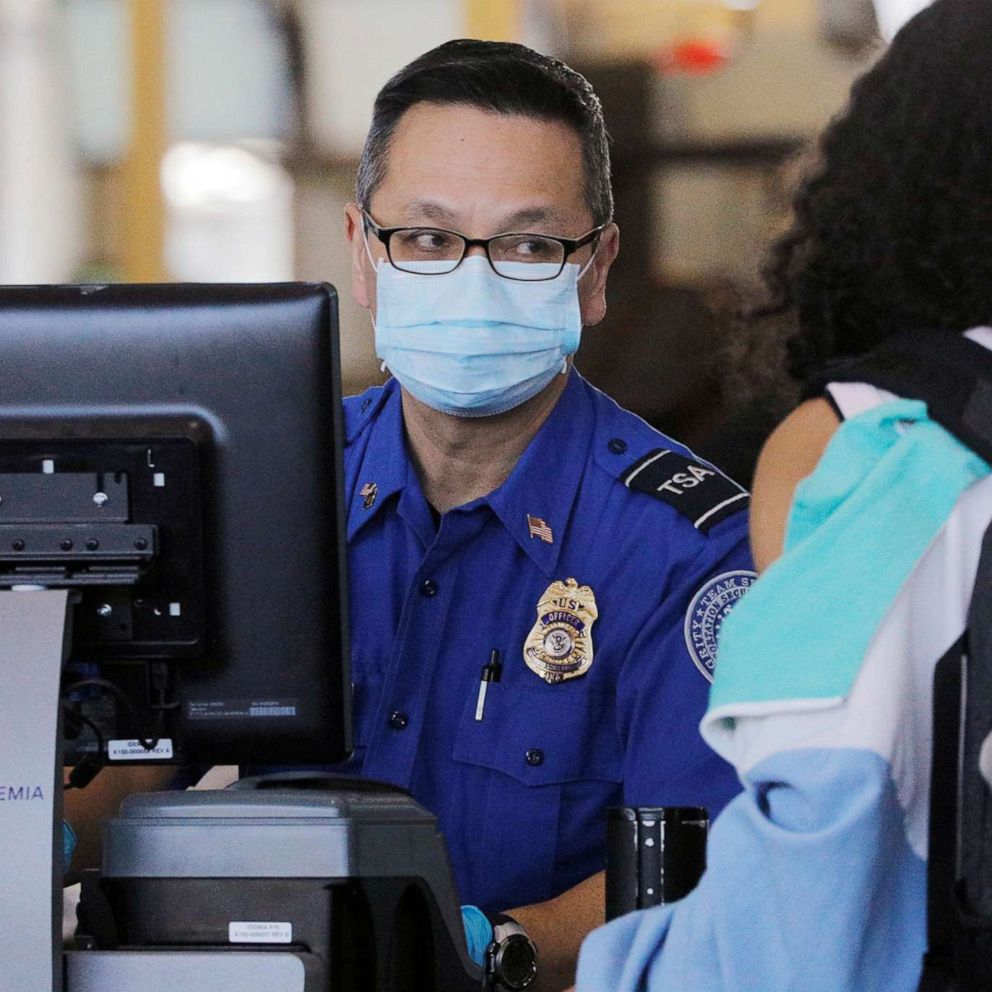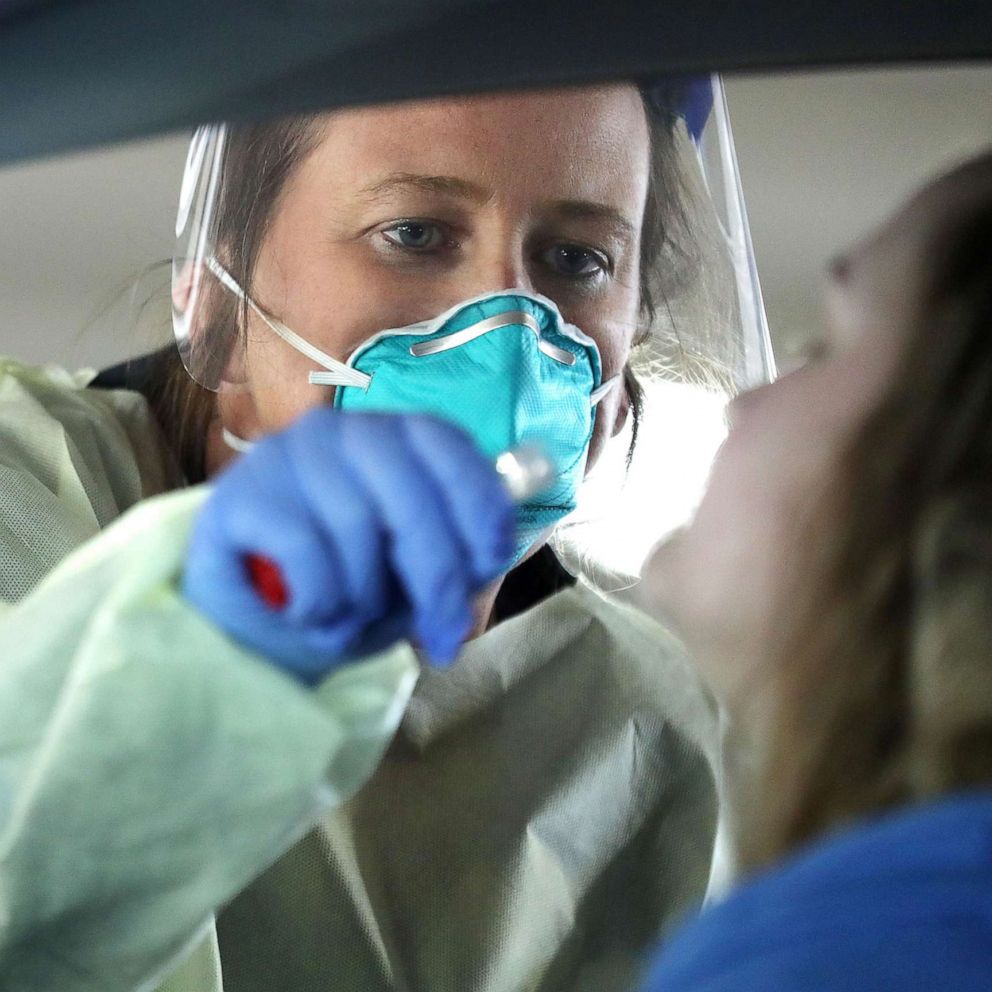Head of largest nurses union in US says they 'don't have protections they need' from coronavirus
Bonnie Castillo says nurses need more protections to fight COVID-19.
Nurses across the United States are currently on the front lines of trying to mitigate the spread of the novel coronavirus, but the head of the country's largest union for registered nurses says they don't have the protection necessary for their job.
Bonnie Castillo, the executive director for National Nurses United, expressed concerns that a lack of personal protective equipment and other protections coordinated between local, state and federal agencies may result in more nurses becoming infected by the novel coronavirus.
She said this in turn could lead to more infections within the hospital and among the nurses' family members.
"Their heart is aching," Castillo told ABC News. "The anger is increasing because they know that there's no reason for this. They love taking care of crises; that's what they do. But to not have the protections that they need in order to do it is becoming increasingly frustrating."
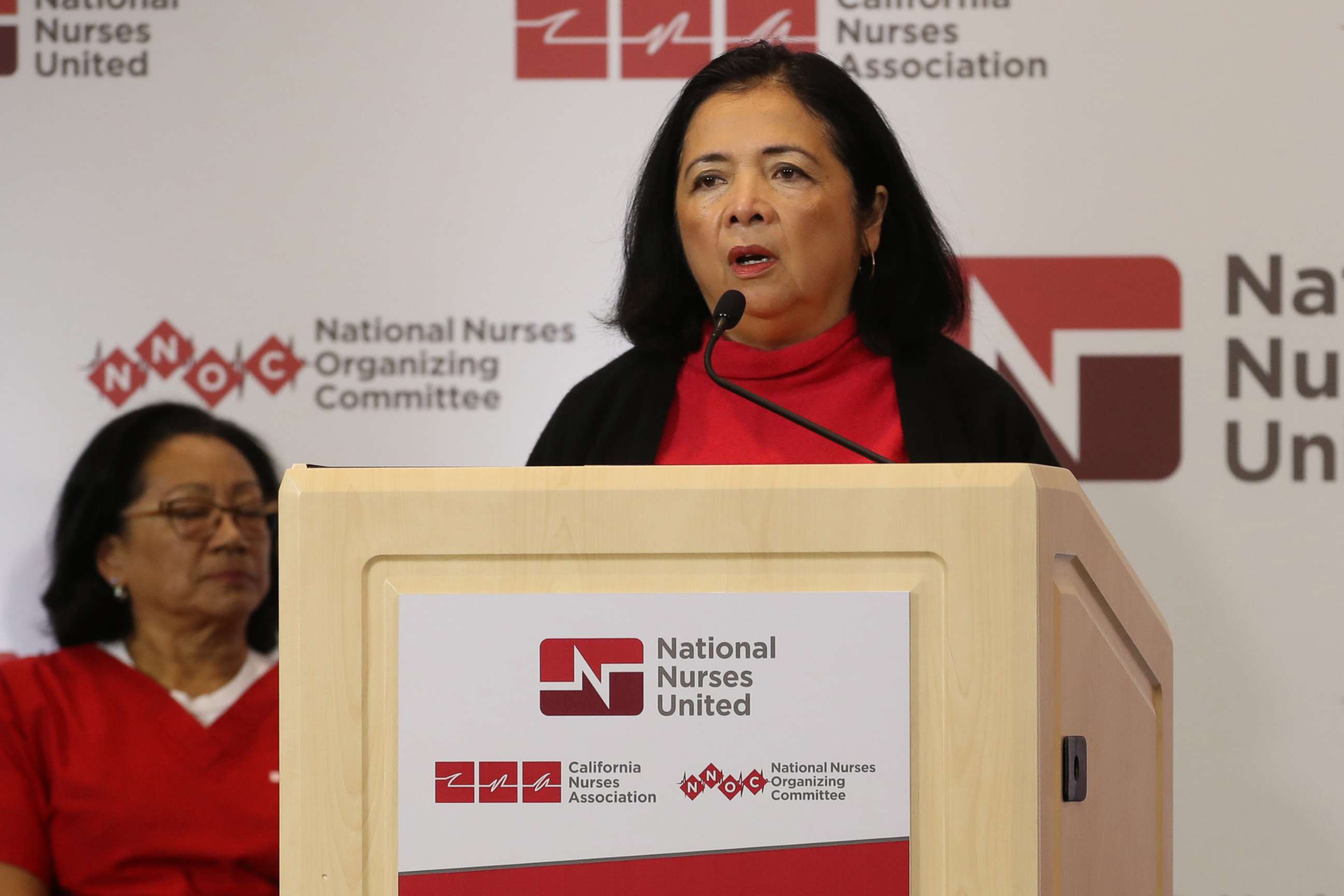
Castillo, whose NNU represents 150,000 registered nurses across the U.S., said that "every day" her organization hears from nurses who say they don't have sufficient resources to confront COVID-19, of which there are over 6,400 cases throughout all 50 states, Washington, D.C., and Puerto Rico.
"Nurses are working with inadequate protections, and that ranges from head coverings, respirators, appropriate gowns, covers for their legs and their feet," Castillo said. "Instead, [they] are being given a surgical mask, a paper gown and a pair of surgical gloves. That is not going to protect the nurse and it's not going to protect anyone else."
Castillo said the lack of PPE could cause nurses to become exposed to COVID-19 and criticized hospitals for not doing enough to prepare, saying that nurses who brought in their own N95 masks were not allowed to use them.
She warned that nurses who become infected would have to self-isolate -- thus risking a nurses shortage -- in order to prevent exposing other patients to the virus, such as those with cancer or heart conditions.
"Right now, for them to be doing this in a pandemic, it's not just affecting us, it's affecting our whole communities; it's affecting our nation," Castillo said.
The issues nurses are facing go beyond PPE, though, Castillo said. She said that a lack of coordination between local, state and federal agencies and hospitals has led to confusion regarding when it's appropriate for people to go to hospitals for the new coronavirus, which can lead to overcrowding and exposure for those not infected.
"What we're lacking is a comprehensive, cohesive public health response, and that starts with educating the public about when to come into the emergency room and when not to come into the emergency room," she said. "That's starting to ramp up some, but instead, what happens is because there is confusion and, actually, in some cases, anxiety and panic, everyone is coming to the emergency room and they could potentially be exposed if there is not adequate screening and isolation of the potential [COVID-19] patients."
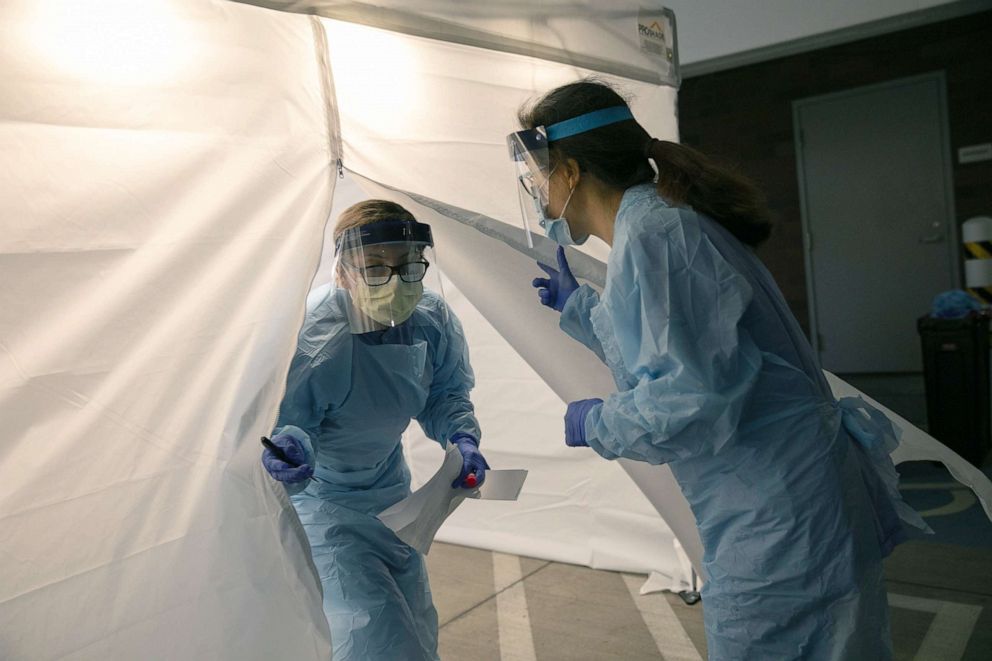
The Centers for Disease Control and Prevention are asking anyone who believes they're sick with COVID-19 and is experiencing mild flu-like symptoms to first isolate at home and call their primary care provider for directions on what to do next. Only those who experience severe breathing problems should call 911 and seek medical care immediately.
Knowing when to go to the emergency room helps protect those entering the hospital just as much as those already inside, including medical staff and patients seeking care for other ailments.
"Right now in the emergency room, without adequate screening and isolation, everyone is exposed -- everyone: the nurse, the health care workers, the other patients that are in the emergency room. Everyone is exposed," Castillo said. "It starts at every entrance in the hospital. There actually has to be a comprehensive plan at all hospitals where patients are directed."
Castillo praised nurses for tackling the COVID-19 pandemic head on. "Nurses don't go the other way; they go into the disaster," she said.
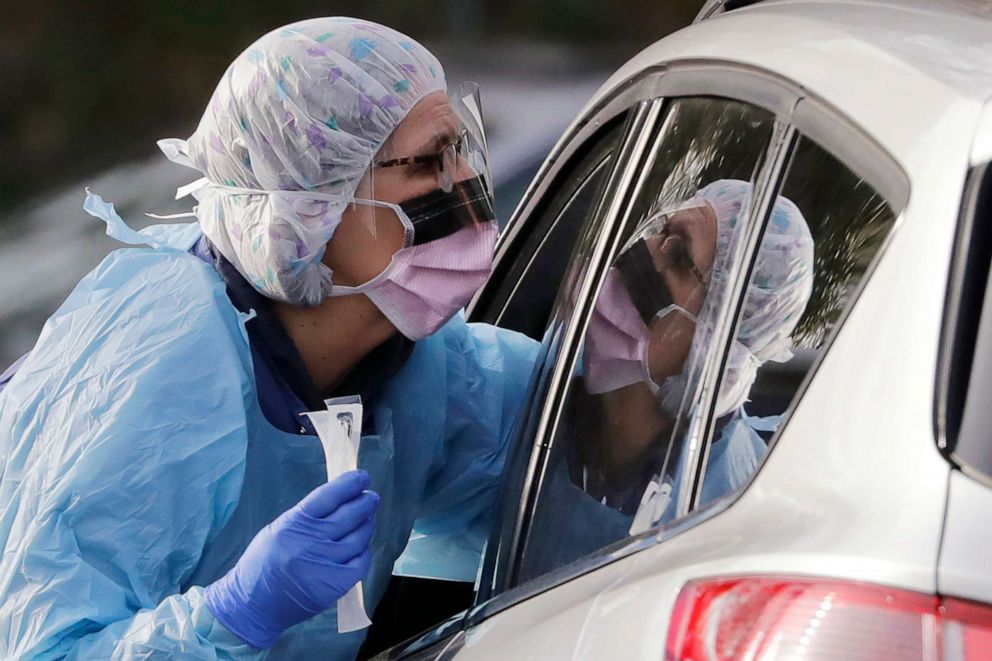
"There's a great deal of anxiety that nurses are experiencing right now because they don't have the adequate protections that they need to deliver the care, and they know that they are incurring significant exposure and don't want to bring that home to their families," Castillo said.
She said some nurses have taken measures to avoid exposing their families to the virus, in some cases taking a financial hit to self-isolate. Others have made special arrangements for their children, she said.
Castillo said they're used to the "life and death pressure" that's common with working in their field. She said what's driving their anxiety is that "hospitals aren't doing everything that they should be to give us what we need to do our jobs."
"These are some of the most courageous men and women I've ever worked with, and they're not going to give up. … I mean, what we do know is that only through the union and through our collective efforts will we be able to win," she said. "So we're very used to taking on this industry. We do it every day … and they've resisted every single health and safety measure that we've fought for, and we've prevailed. And so, we're going to prevail here, too."
ABC News' Zoe Lake contributed to this report.
